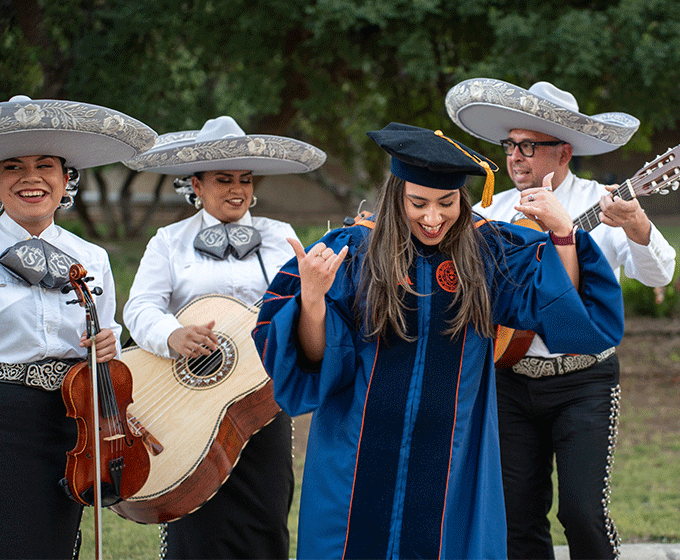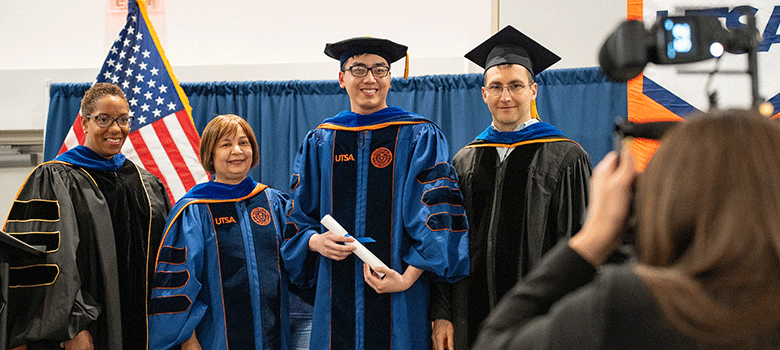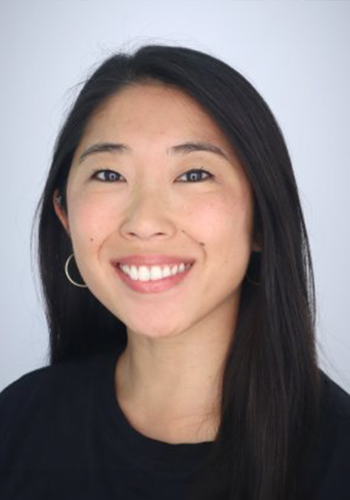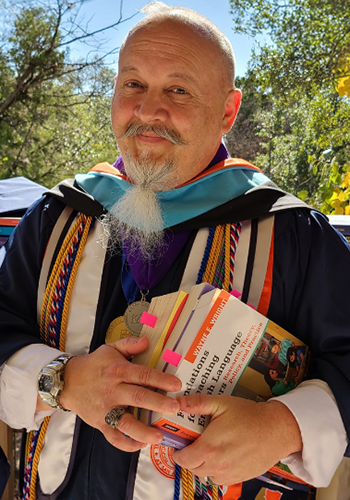Posted on October 17, 2024 by Shea Connor

OCTOBER 17, 2024 — For decades, students pursuing doctoral degrees were seemingly predestined for careers in academic research. As a result, most colleges and universities have long devoted the bulk of their resources solely to honing the research capabilities of their graduate students.
This approach, however, doesn’t entirely jive with the realities of today’s workforce. Greater numbers of employers are widely seeing the benefits of hiring candidates with doctoral expertise. Few know this better than Ambika Mathur, senior vice provost for graduate and postdoctoral studies and dean of The UTSA Graduate School. In her five years at the university, she has collaborated with her peers to provide more comprehensive professional development opportunities to UTSA’s doctoral students and postdoctoral researchers.
“It’s important that we expose them to careers outside of academia given that only 25% of postdoctoral and doctoral students end up in tenure-track faculty positions at R1 institutions,” Mathur said. “They’re increasingly going into careers in government, the nonprofit industry and positions where they can shape policy.”
To that end, UTSA has been well ahead of the curve in supporting its doctoral scholars and postdoctoral fellows as they pursue a breadth of career paths. The Graduate School’s Graduate and Postdoctoral Success (GPS) program helps prepare master’s students, doctoral students and postdocs for a variety of career options in an evolving, modern workforce. GPS offers programming that’s flexible and ensures that Roadrunners can meet the career exploration and professional development goals that they set out to achieve.
“We’re really focused on the competencies that students need,” Mathur added.
The Graduate School is also focused on the competencies that employers need from potential candidates with doctoral degrees. Mathur says that although professional organizations are often thrilled with their research aptitude and vast knowledge in specific fields, they would like to see doctoral graduates broadly improve many common workplace qualities, such as communicating succinctly and effectively. Employers also wanted to see doctoral degree-earners enter the workforce with enhanced leadership, management and interviewing skills.

Over the last five years, The Graduate School has helped close that gap with programming that bolsters a postdoc’s professional acumen. The 3MT® Research Competition, for instance, provides graduate students the opportunity to showcase their scholarly work or research in three minutes or less. The competition encourages them to develop concise communication skills, showcase their work with the San Antonio community and initiate new collaborations and networks.
The Graduate School has also launched the Career Pathways guest speaker series to promote the career pursuits, career development and career impacts of UTSA’s graduate students and postdoctoral fellows. These conversations focus on three key topics: personal career stories with UTSA Graduate School alumni; discussions of career trajectories with UTSA faculty, staff, administrators and city and state leaders; and national perspectives from leaders in industry and academia from across

the U.S.
Katie McCance is a postdoctoral fellow who has flourished since becoming a Roadrunner through events like these. She participates in and helps coordinate the UTSA Center for the Integration of Research, Teaching, and Learning (CIRTL) network, another initiative under the GPS umbrella, which promotes instructional excellence in STEM disciplines in higher education. Working with the CIRTL has given McCance the opportunity to expand her network through meetings with other institutions across the country. Together, they learn and share about mutual interests around college teaching. She’s also a co-leader of the Postdoc Association at UTSA, which allows her to interact with postdocs across all disciplines.
“I was drawn to UTSA because I love the values and community here,” McCance said. “Even during my interview, I could tell how supported I would be at UTSA because of the amazing faculty and mentors who care about postdocs and our success.”
Although GPS programs like Career Pathways and CIRTL have been a great benefit to UTSA’s graduate community, arguably nothing has been a bigger hit than The Graduate School’s launch of micro-credentials through Credly, which gives master’s students, doctoral students and postdocs the chance to earn credentials or “badges” for achieving professional competencies through various experiences like online sessions and workshops. Whether they’re added to résumés or LinkedIn profiles, these micro-credentials show potential employers that Roadrunners at the graduate level have completed training in sought-after qualities such as leadership, conflict management, delegation and public speaking among many topics. There are also entire series of micro-credentials dedicated to generative AI, scholarly authorship and the first-year experience at UTSA.
Of course, none of these initiatives would be successful without the guidance provided by faculty mentors. In 2023, the UTSA Division of Academic Affairs implemented a new set of best practices for faculty mentoring graduate students and postdoctoral fellows. Since then, grad students and postdocs at UTSA are working with their mentors on individual development plans that track their interests and career trajectories; being exposed to more conversations and opportunities involving career development; receiving constructive and timely feedback from their mentors; and are being supported in establishing and maintaining a healthy work-life balance. The results speak for themselves.
“We’re seeing the positive outcomes,” Mathur said. “Attrition is dropping, and for the first time ever, our overall doctoral student count has gone over 1,000.”
A big driver in UTSA’s rising doctoral student count can be further attributed to the university’s improved retention efforts. One of those efforts has earned national acclaim. The Keep Running With Us (KRWU) program is a streamlined, invite-only admissions process that aims to keep talented UTSA undergraduate students and recent undergraduate alumni at the university to pursue a graduate education. Last year, the program was named a finalist in the graduate category of the 2023 Examples of Excelencia program by Excelencia in Education and was prominently featured this summer in Strategic Enrollment Management Quarterly.

KRWU removes many barriers to higher education for UTSA’s best and brightest, offering more graduates like Karl Van Over ’18 an opportunity to earn advanced degrees and encouraging them to stay in San Antonio to make a positive impact. Van Over had volunteered for many years as an English as a Second Language (ESL) tutor here in the Alamo City, and after obtaining his bachelor’s degree in Interdisciplinary Studies, he was encouraged to apply through the KRWU program to pursue a Master’s in Teaching English as a Second Language.
He earned that master’s degree in 2020 and is now in his third semester pursing a Ph.D. in Culture, Literacy and Language through the UTSA College of Education and Human Development (COEHD). Van Over hopes he can offer a unique perspective and contribute to positive progress in second language education.
“I see myself as an outlier among my peers. I am not pursuing a career as a professional researcher or a university faculty member, but remaining committed to volunteering as an ESL tutor,” Van Over said. “Thanks to the Keep Running With Us program and the support of COEHD’s Department of Bicultural-Bilingual Studies and The Graduate School’s faculty and staff, I am now positioned to meaningfully contribute to the growth of English language learners and improving the second language education field of study.”
Much like Van Over, Mathur says the potential to transform communities in San Antonio has resonated with many newer doctoral and postdoctoral scholars.
“Even at the doctoral level, we have a high number of first-generation and Hispanic graduates here at UTSA. They can empower generational change,” Mathur said. “We have all of these issues of obesity, poverty and educational attainment in San Antonio, and it’s really important for them to understand that by getting a doctoral degree, they can influence policy and have a local or regional impact on health, economics and education.”
Originally appeared in UTSA Today.

